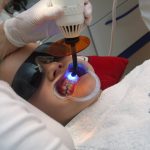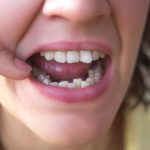What Happens When You Neglect Brushing Your Teeth: A Comprehensive Guide
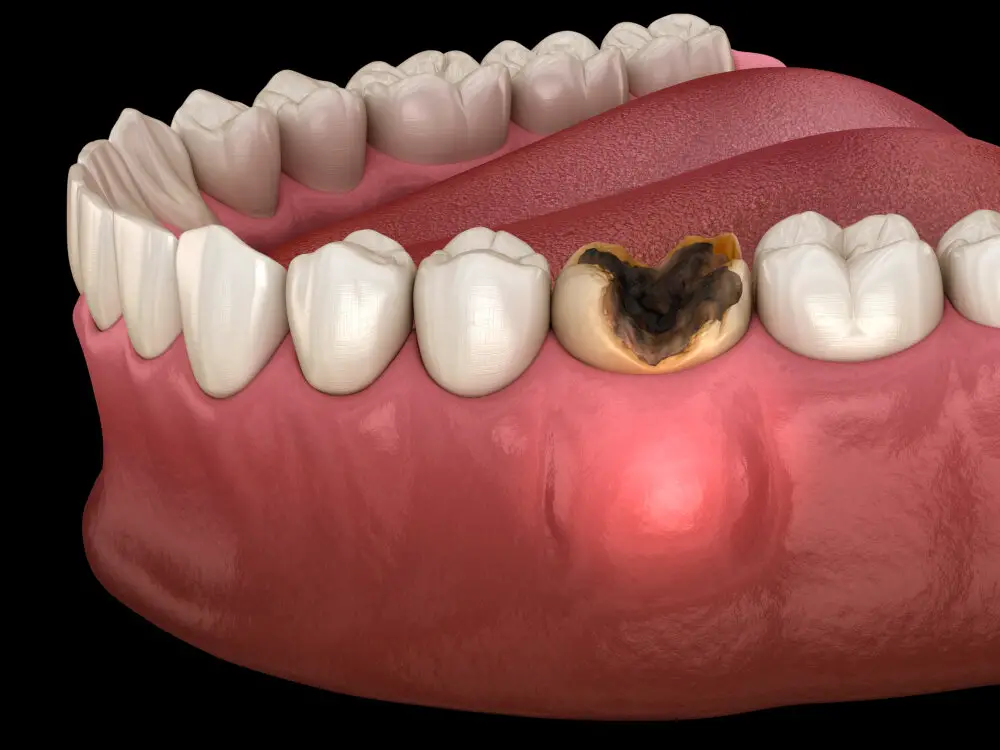
Neglecting oral hygiene can have serious consequences for your dental health. Most people are aware that brushing their teeth is crucial for maintaining good oral health, but many still neglect to do so regularly. This can lead to a number of dental problems, such as cavities, gum disease, and bad breath. In this comprehensive guide, we will explore what happens when you neglect brushing your teeth and the impact it can have on your overall health. When you neglect to brush your teeth, you are allowing bacteria and plaque to build up on your teeth and gums. Over time, this can lead to tooth decay and cavities, which can be painful and require costly dental treatments to fix. Additionally, the bacteria in your mouth can cause inflammation and infection in your gums, leading to gum disease. Gum disease can cause gum recession, tooth loss, and even contribute to systemic health problems such as heart disease and diabetes. By neglecting to brush your teeth, you are putting your dental health and overall wellbeing at risk.
Dental hygiene is an essential aspect of maintaining overall health and well-being. Neglecting to brush your teeth regularly can lead to a host of problems, including tooth decay, gum disease, and bad breath. Poor dental hygiene can also contribute to more serious health issues such as heart disease, diabetes, and even dementia. Taking the time to properly care for your teeth and gums can prevent these issues from arising and can save you from expensive dental procedures in the future. In addition, having a healthy and attractive smile can boost your confidence and improve your quality of life. So, make sure to brush twice a day, floss regularly, and visit your dentist for routine check-ups to maintain optimal dental health.
Neglecting teeth brushing can happen due to a variety of reasons. One of the most common reasons is a lack of awareness about the importance of dental hygiene. People may not realize that brushing their teeth regularly can prevent tooth decay, gum disease, and bad breath. Another reason could be a lack of time or motivation to maintain a dental routine. Busy schedules or feeling too tired at the end of the day can lead to neglecting brushing. Additionally, some individuals may find brushing uncomfortable or painful due to sensitive teeth or other dental issues. Whatever the reason, neglecting dental hygiene can have serious consequences on overall health and well-being.
Plaque BuildUp and Tooth Decay

Plaque buildup and tooth decay are two of the most common dental problems that arise due to poor oral hygiene. Plaque is a type of sticky film that forms on the surface of teeth when leftover food particles mix with saliva and bacteria in the mouth. Over time, if not removed by regular brushing and flossing, the plaque hardens into tartar and can lead to decay and gum disease. Plaque buildup can also cause bad breath and discoloration of teeth, which can be embarrassing and affect one’s self-esteem. Tooth decay is caused by the breakdown of tooth enamel, the hard, protective outer layer of teeth. When plaque is left on teeth for too long, the bacteria in the plaque produce acid that eats away at the enamel. This can lead to cavities, which are holes in the teeth that can cause pain and sensitivity. If left untreated, decay can spread to the tooth’s pulp, the soft tissue inside the tooth, and cause an infection or abscess. In severe cases, decay can even lead to tooth loss. Proper brushing and flossing, along with regular dental checkups and cleanings, can help prevent plaque buildup and tooth decay.
Plaque is a soft, sticky film of bacteria that builds up on teeth and gums, causing tooth decay and gum disease. It forms when food particles and sugars mix with saliva and bacteria in the mouth, creating a sticky substance that adheres to teeth and gums. If left untreated, plaque can harden and form tartar, which can only be removed by a dentist or dental hygienist. The accumulation of plaque and tartar can lead to gingivitis, an early stage of gum disease, which causes inflammation, bleeding, and tenderness of the gums. Therefore, maintaining good oral hygiene habits, such as brushing and flossing regularly, is essential to prevent plaque buildup and maintain healthy teeth and gums.
Plaque is a sticky film of bacteria that forms on the teeth and gums. When left unchecked, plaque can build up and produce acid that erodes the tooth enamel, leading to tooth decay. The acid produced by the bacteria in plaque attacks the minerals in the tooth, causing tiny holes or cavities to form. Over time, these cavities can grow larger and deeper, eventually reaching the inner layers of the tooth and causing pain and sensitivity. If left untreated, tooth decay can even lead to tooth loss. To prevent plaque buildup and tooth decay, it is essential to practice good oral hygiene habits such as brushing twice a day, flossing daily, and visiting the dentist regularly for cleanings and checkups.
Bacteria plays a fundamental role in plaque formation. The mouth is a natural habitat for millions of microorganisms, and some of them are harmful to our oral health. The bacteria present in our mouth feed on the leftover food particles, especially carbohydrates, and produce acids that erode the tooth enamel. These acids form a sticky film called plaque, which adheres to the teeth’ surface and gum line. If left untreated, the plaque hardens and becomes tartar, which can only be removed by a dentist. This buildup of plaque and tartar can cause various dental problems, including cavities, gum disease, bad breath, and tooth loss. Therefore, it is essential to maintain good oral hygiene habits like brushing, flossing, and regular dental checkups to keep the bacterial growth in check and prevent plaque formation.
Bad Breath and Gum Disease
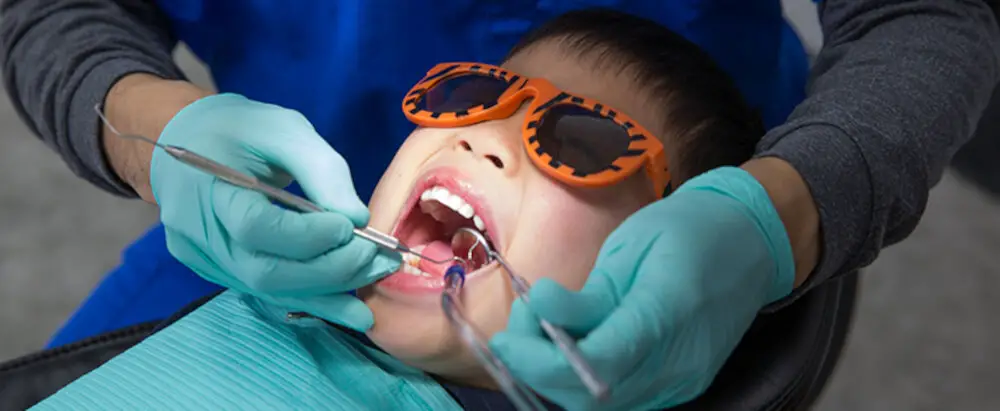
Bad breath, also known as halitosis, is a common issue that affects many people. It can be caused by a variety of factors, including poor oral hygiene, certain foods, and medical conditions. One of the most common causes of bad breath is gum disease. Gum disease, also known as periodontal disease, is an infection of the gums that can lead to tooth loss if left untreated. The bacteria that cause gum disease can also produce an unpleasant odor that contributes to bad breath. In addition to bad breath, gum disease can cause bleeding gums, loose teeth, and receding gums. It’s important to maintain good oral hygiene, including regular brushing and flossing, to prevent gum disease and maintain fresh breath. If left untreated, gum disease can progress and cause serious damage to your teeth and gums. In addition to bad breath and bleeding gums, gum disease can lead to tooth decay, tooth loss, and even bone loss in severe cases. Gum disease can also increase your risk of other health issues, such as heart disease and stroke. To prevent gum disease and its associated complications, it’s important to brush and floss regularly, visit your dentist for regular check-ups and cleanings, and avoid tobacco products. If you notice any signs of gum disease, such as bleeding gums or bad breath, it’s important to seek treatment from your dentist as soon as possible to prevent further damage.
Bad breath, also known as halitosis, can have various causes. Poor oral hygiene is one of the most common causes of bad breath. When you don’t brush and floss your teeth properly, food particles can stick to your teeth and gums, which causes bacteria to grow and produce bad odors. Other causes of bad breath include gum disease, cavities, dry mouth, certain medications, smoking, and certain medical conditions such as diabetes, liver disease, or acid reflux. It’s essential to maintain good oral hygiene habits and visit a dentist regularly to prevent bad breath and maintain good overall health.
Gum disease, also known as periodontal disease, is a serious oral health condition that can develop when plaque and tartar build up on the teeth and gums. As these substances accumulate, they begin to irritate the gums, causing them to become swollen, red, and tender. Over time, the gums may begin to pull away from the teeth, creating pockets where bacteria can thrive. As the infection spreads, it can damage the bones and tissues that support the teeth, leading to tooth loss and other complications. Without proper treatment, gum disease can cause irreversible damage to the mouth and even impact overall health. Therefore, neglecting to brush your teeth regularly can have serious consequences for your oral and systemic health.
Neglecting the habit of brushing your teeth regularly can lead to a buildup of harmful bacteria in your mouth, which can eventually result in gum disease. While the effects of gum disease are certainly unpleasant, such as swollen and bleeding gums, it can also have significant impacts on your overall health. Studies have linked gum disease to a number of serious health conditions, including heart disease, stroke, and diabetes. In fact, some researchers believe that gum disease may be a contributing factor to these conditions, as the bacteria that cause gum disease can spread to other parts of the body and cause inflammation. Therefore, it is essential to take proper care of your oral health by brushing and flossing regularly to prevent gum disease and its potential consequences for your overall well-being.
Stains and Discoloration

Stains and discoloration can be an unsightly consequence of neglecting to brush your teeth. The buildup of plaque and tartar on your teeth can cause them to become yellow or brown in color. Additionally, drinking coffee, tea, or smoking can also cause discoloration of the teeth. If left untreated, the stains and discoloration can become more severe and difficult to remove. In some cases, professional teeth whitening may be necessary to restore the natural color of the teeth. However, prevention is key, and maintaining good oral hygiene habits can help prevent stains and discoloration from occurring in the first place. Ignoring stains and discoloration can also lead to more serious dental problems. It is important to remember that the buildup of plaque and tartar can lead to gum disease and tooth decay. If left untreated, these conditions can result in tooth loss and even more severe health problems. By taking the time to brush and floss your teeth regularly, you can prevent stains and discoloration, as well as more serious dental issues. Remember, neglecting your oral hygiene can have consequences far beyond just the appearance of your teeth.
Neglecting brushing can have a significant impact on tooth color. Failure to brush regularly leads to the accumulation of plaque and tartar, which can stain and discolor teeth. Plaque is a sticky film of bacteria and food particles that forms on teeth throughout the day. If it is not removed through brushing, it can harden into tartar, which is more difficult to remove and can cause more severe staining. Additionally, poor oral hygiene can lead to tooth decay and cavities, which can also contribute to discoloration. To maintain a bright, healthy smile, it is important to brush twice daily and visit a dentist regularly for cleanings and check-ups.
Neglecting oral hygiene can lead to various dental problems, including tooth stains. There are two primary types of tooth stains: extrinsic and intrinsic. Extrinsic stains occur on the outer layer of the tooth and are usually caused by external factors such as smoking, drinking coffee, tea, or red wine, or inadequate brushing and flossing. On the other hand, intrinsic stains happen within the inner layer of the tooth and can be caused by various factors such as excessive fluoride intake, certain medications, or trauma to the tooth. While extrinsic stains can often be treated with teeth whitening procedures or changes in lifestyle habits, intrinsic stains may require more extensive dental treatment such as bonding or veneers. Therefore, it is essential to maintain good oral hygiene habits to prevent tooth discoloration and other dental issues.
Prevention and treatment options for neglecting regular dental hygiene practices are crucial to maintain good oral health. Regular brushing, flossing, and professional cleaning appointments can prevent the accumulation of plaque and bacteria that can lead to tooth decay and gum disease. Treatment options such as fillings, root canals, and extractions may be necessary if dental problems have already developed. In more severe cases, periodontal surgery or dentures may be required. Neglecting dental hygiene can lead to not only oral health problems but also other health issues such as heart disease and diabetes. Therefore, it is essential to prioritize oral health and seek professional dental care when needed.
Tooth Loss and Root Canal Therapy
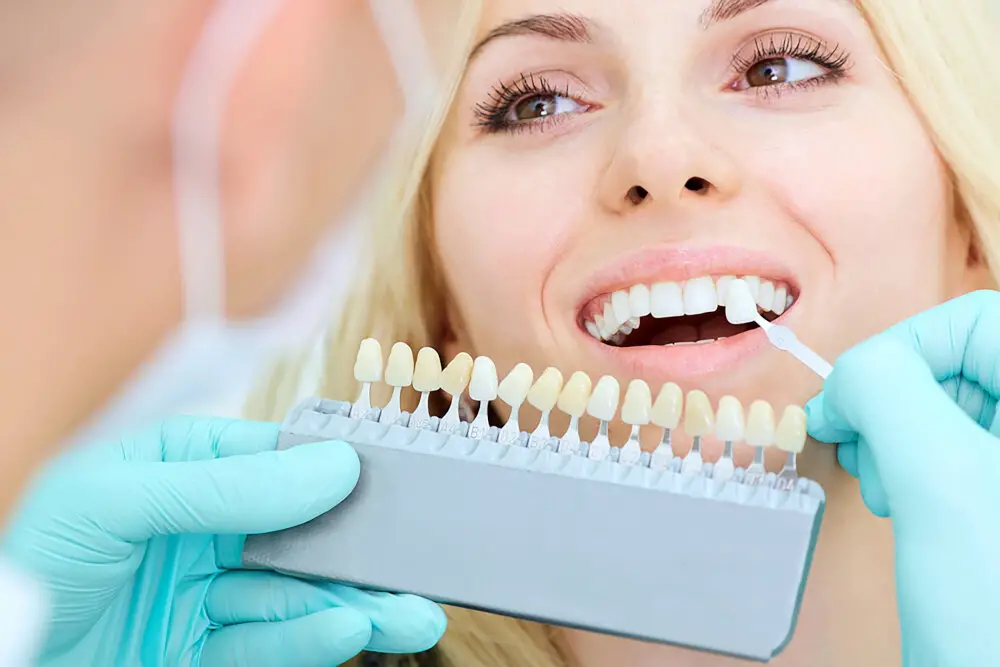
Tooth loss is a significant dental problem that can lead to several complications, both functional and aesthetic. Neglecting proper oral hygiene can result in tooth decay, gum disease, and other dental issues that may eventually lead to tooth loss. When a tooth is lost, it not only affects the appearance of your smile but also your ability to chew and speak properly. Additionally, it can cause bone loss in the jaw and lead to further dental problems. Therefore, it is essential to take proper care of your teeth and gums to prevent tooth loss and maintain good oral health. Root canal therapy is a common dental procedure used to treat infected or damaged teeth and prevent tooth loss. When a tooth becomes infected or inflamed, the pulp inside the tooth can become damaged and bacteria can begin to grow, causing pain and discomfort. Root canal therapy involves removing the damaged or infected pulp, cleaning the tooth, and filling it with a special material to prevent further infection. This procedure can help save your natural tooth and prevent the need for more invasive dental procedures such as extraction or dental implants. While root canal therapy may seem daunting, it is a safe and effective way to preserve your natural teeth and maintain good oral health.
Tooth loss can occur due to a variety of reasons, including neglecting oral hygiene practices such as brushing and flossing, poor nutrition, and lifestyle habits like smoking. Plaque buildup can lead to gum disease, which can cause the gums to recede and expose the tooth roots. This can lead to tooth decay and eventual loss of the tooth. Additionally, trauma to the mouth, such as a sports injury or accident, can also cause tooth loss. It is important to maintain good oral hygiene habits and seek professional dental care regularly to prevent tooth loss and maintain good oral health.
Root canal therapy is a crucial treatment that can save an infected or damaged tooth from extraction. Neglecting to brush your teeth can lead to the development of cavities, which can eventually reach the pulp of the tooth and cause an infection. Root canal therapy involves removing the infected or damaged pulp, cleaning the area, and filling it with a material to prevent further infection. By undergoing root canal therapy, patients can save their natural teeth and avoid the need for costly and time-consuming tooth replacement options. Thus, it is essential to prioritize dental hygiene and seek prompt treatment for any dental issues to prevent the need for root canal therapy.
To prevent tooth loss, it is essential to maintain good oral hygiene practices. Brushing your teeth twice a day, flossing daily, and using mouthwash can help prevent the buildup of plaque and tartar, which can lead to gum disease and tooth decay. A balanced diet that is low in sugar and high in calcium and vitamin D can also help keep your teeth healthy and strong. Regular dental check-ups and cleanings are also essential to catch any issues early and prevent them from developing into more significant problems. In some cases, dental procedures such as fillings, root canals, and extractions may be necessary to prevent tooth loss. By taking care of your teeth and gums, you can maintain a healthy and beautiful smile for years to come.
Neglecting dental hygiene can lead to a variety of consequences that can affect both your oral health and overall health. Poor dental hygiene can cause tooth decay, gum disease, and bad breath. It can also lead to tooth loss, which can affect your ability to chew food properly and can result in changes to your facial structure. Neglecting dental hygiene can also have systemic effects on your body, as oral bacteria can enter the bloodstream and contribute to conditions such as cardiovascular disease, respiratory infections, and diabetes. In addition to the physical consequences, neglecting dental hygiene can also have social and psychological effects, as bad breath and dental problems can lead to embarrassment and self-consciousness. Thus, it is important to maintain good dental hygiene by brushing twice a day, flossing daily, and visiting the dentist regularly.
Daily oral care is critical for maintaining good dental hygiene and overall health. Neglecting to brush and floss regularly can lead to a buildup of plaque and bacteria that can cause tooth decay, gum disease, and bad breath. In addition, poor oral health has been linked to a range of systemic conditions, including heart disease, diabetes, and cancer. By establishing a daily oral care routine that includes brushing twice a day, flossing, and using mouthwash, individuals can help prevent these health issues and maintain a bright, healthy smile for years to come.
Maintaining good dental hygiene is crucial for maintaining healthy teeth and gums. One of the most important tips for good dental hygiene is to brush your teeth twice a day with fluoride toothpaste. Additionally, it’s important to floss daily to remove plaque and food particles from between your teeth. Eating a healthy diet that includes plenty of fruits and vegetables can also help keep your teeth and gums healthy. Avoiding sugary and acidic foods and drinks can also help prevent tooth decay. Regular dental check-ups and cleanings are also important to detect and treat any dental issues early on. Neglecting dental hygiene can lead to a range of dental problems, including cavities, gum disease, and tooth loss, so it’s important to take care of your teeth and gums every day.
Conclusion
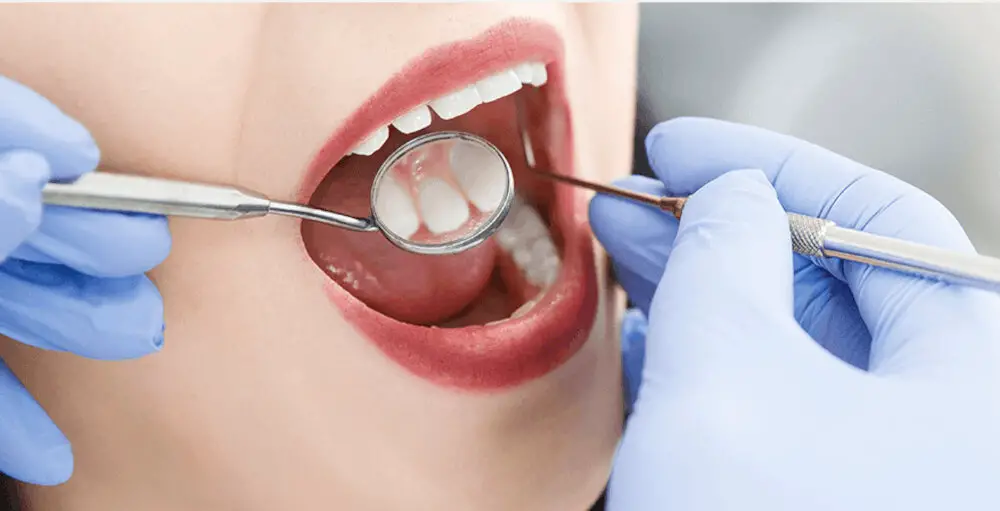
In conclusion, neglecting to brush your teeth can have serious consequences on your oral health. From bad breath to gum disease and even tooth loss, the effects of poor dental hygiene can be both painful and expensive to treat. It is important to establish a daily dental care routine that includes brushing, flossing and regular visits to the dentist to prevent any long-term damage. Remember, taking care of your teeth is not only crucial for your overall health but also for your confidence and well-being. Don’t neglect your dental hygiene, make it a priority and enjoy a healthy and happy smile.




